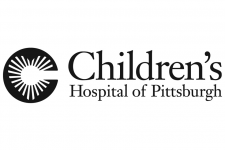New Study Shows Effectiveness of Counseling Intervention to Prevent TDV

PITTSBURGH, PA - December 22, 2014
A study by a Children’s Hospital of Pittsburgh of UPMC researcher provides the first evidence of the potential benefits of a brief, provider-delivered universal education and counseling intervention in school-based health centers to address and prevent the major public health problem of adolescent relationship abuse. The study appears online today in Pediatrics.
In collaboration with the California Adolescent Health Collaborative of the Public Health Institute, California School-Based Health Alliance and Futures Without Violence, the study was conducted during the 2012-2013 academic year at eight school-based health centers in California where students receive confidential clinical health services. Researchers surveyed 1,062 teens ages 14 to 19 for exposure to adolescent relationship abuse (including cyber dating abuse), sexual behavior, and care-seeking for sexual and reproductive health at their initial visit and again three months later.
Providers and staff in four school-based health centers received training on how to talk about healthy and unhealthy relationships; received palm-sized brochures about relationship abuse and available resources to hand out to patients; and learned how to refer youth to additional services and supports. No changes were implemented at the other four school-based health centers.
The researchers found students at the intervention sites were more likely than those at the other sites to recognize sexual coercion. Among students who reported relationship abuse at an initial visit on a confidential survey, students at intervention schools were significantly less likely to report such abuse on the follow-up survey 3 months later.
"This study shows that a universal education and brief counseling approach in health care settings may be a useful way to address relationship abuse among adolescents,” said lead investigator Elizabeth Miller, M.D., Ph.D., chief, Division of Adolescent and Young Adult Medicine. “Clinicians talking about healthy and unhealthy relationships with all of their patients can make a difference."

